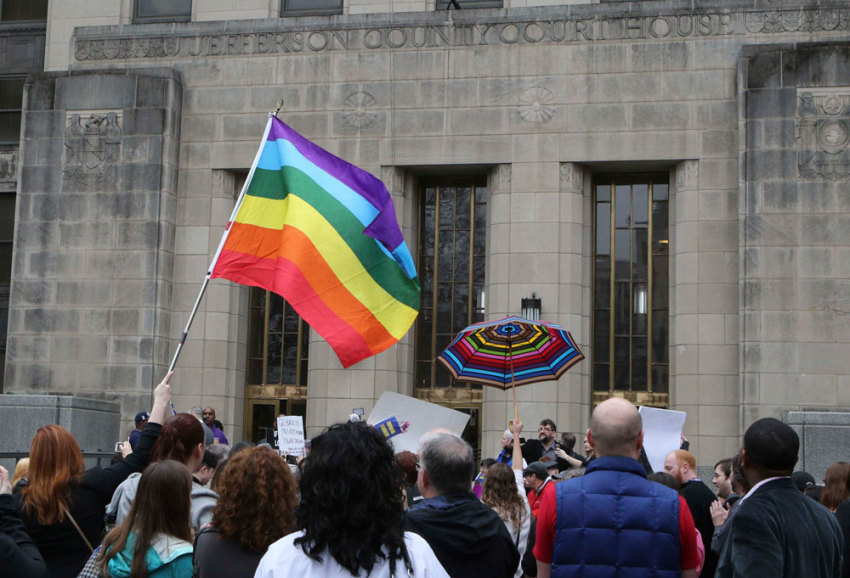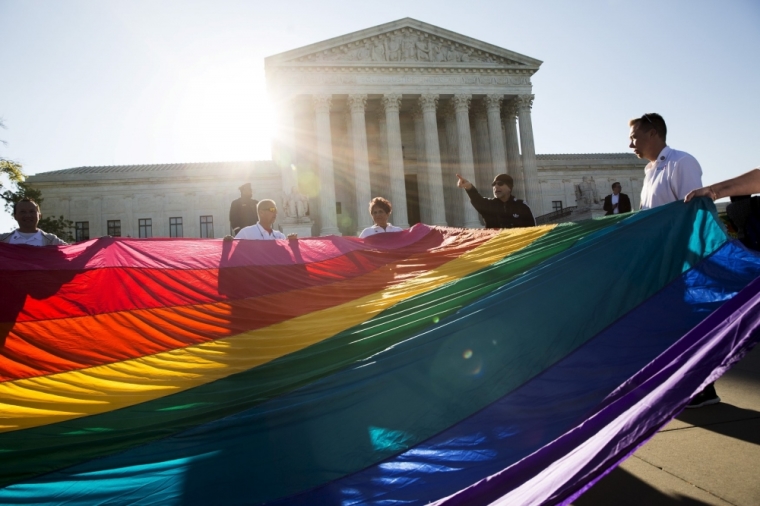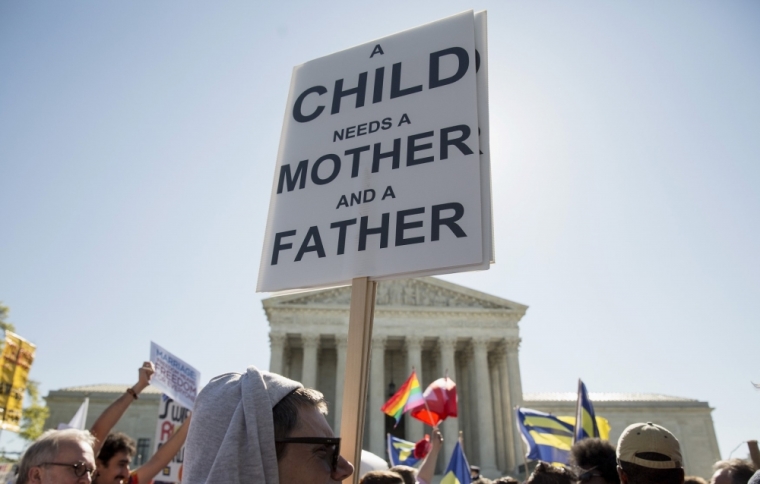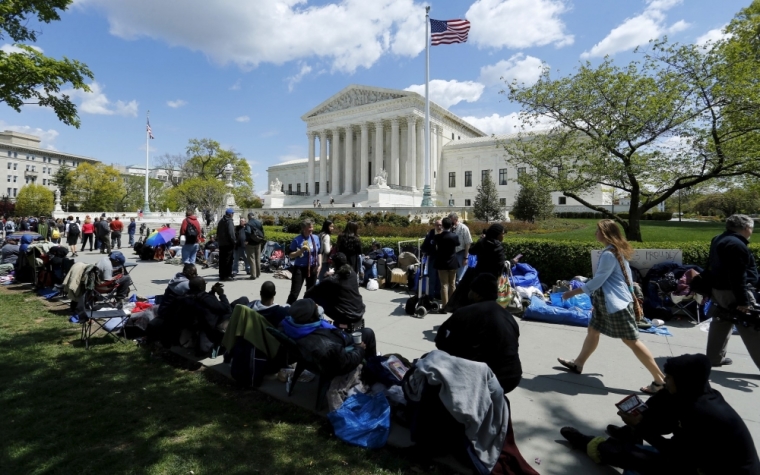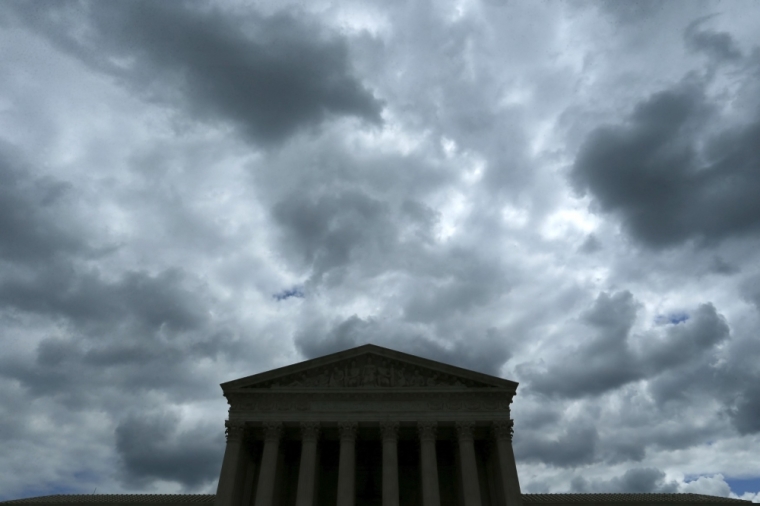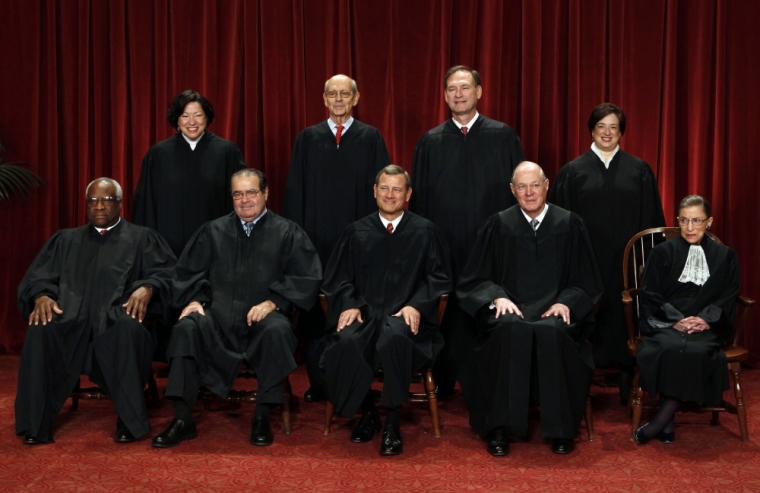Analysis: On Gay Marriage, Will Five Judges Reject Deliberative Democracy?
The redefinition of marriage to include same-sex couples has mostly been a revolution by a few judges. Will five Supreme Court judges continue that trend and reject a deliberative democratic process to define marriage?
The U.S. Supreme Court will hear oral arguments Tuesday, April 28 on an appeal from the Sixth Circuit Court of Appeals regarding the constitutionality of four state-level gay marriage bans.
Since June 2013, the number of states that legally recognize same-sex marriage dramatically increased from nine and the District of Columbia to 37 states, with Alabama being the most recent addition.
Many have marveled at the rapid increase in states that now have legalized gay marriage and believe the highest court in the land will finish off the remaining 13 bans.
This sudden increase in legalized gay marriage, while perceived as a broad-based grassroots upsurge, is actually the product of a fairly small number of judges overruling the votes of millions.
Background
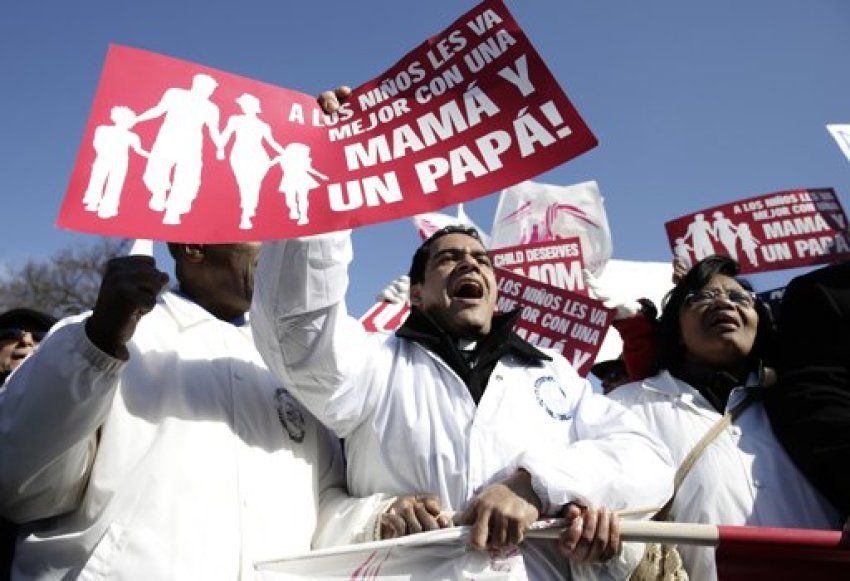
From 1998 to 2012, majorities in 30 states approved amendments to their constitutions defining marriage as being between only one man and one woman. In these referenda, an electorate comprised of a diverse array of races, genders, political parties, and demographics passed the amendments, at times overwhelmingly.
In response, lawsuits eventually were leveled against all of the state-level bans. By 2013, eight states and the District of Columbia legalized gay marriage. Of those nine, only three of them did so via judicial decision while the other six were via legislative action or a referendum. The first was Massachusetts, whose highest court ruled 4 to 3 in 2004 to strike down their state ban.
In 2013, the Supreme Court ruled 5 to 4 in Windsor v. United States that a crucial component of the Defense of Marriage Act was unconstitutional. In the same session, the highest court ruled 5 to 4 that a lower court ruling striking down California's constitutional ban was to be upheld.
From the Windsor decision until February, lower court judges across the country ruled several state level bans unconstitutional. Many of these decisions were upheld by appellate courts.
During this time period, several states that never voted on an amendment but enacted statutes against gay marriage also had their laws struck down. Among these were Indiana, New Jersey, New Mexico, Pennsylvania, West Virginia, and Wyoming.
Below are summaries by region of the 17 state-level amendments against gay marriage passed by voters that have been struck down by judicial fiat since June 2013. Estimates for number of votes were rounded down.
The Midwest
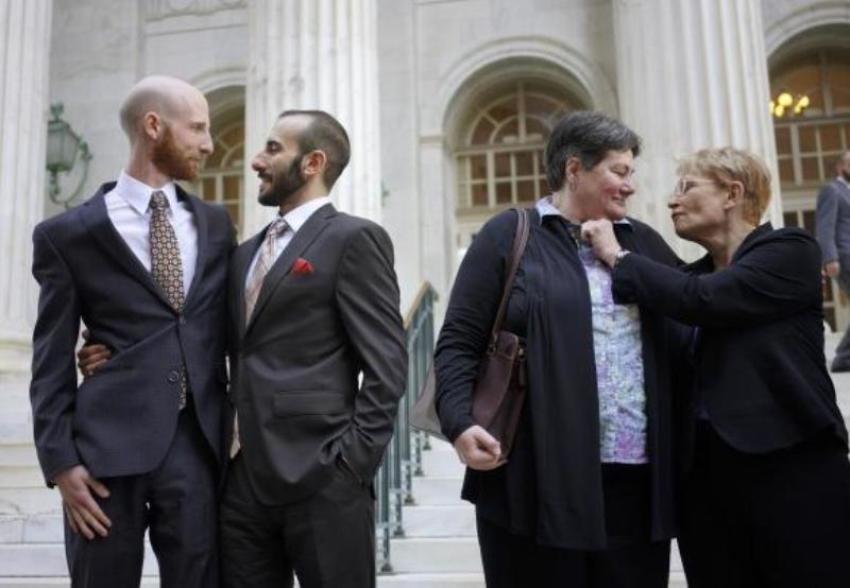
In 2006, Colorado voters passed Amendment 43 with 56 percent saying yes and 44 percent saying no. The total number of voters approving was approximately 768,000.
In July 2014 two district court judges ruled Amendment 43 unconstitutional. Last October when the Tenth Circuit Court of Appeals ruled Utah's and Oklahoma's bans unconstitutional, the precedent set by the decisions was applied to Colorado's appeal.
April 2005 saw Kansas approve the Kansas Marriage Amendment with 70 percent in support and 30 percent opposed. Approximately 417,000 voted yes. In November 2014, a district court judge ruled the amendment unconstitutional and granted a temporary stay that ended after the U.S. Supreme Court allowed for the stay to expire.
In 2004, Montana voters approved Initiative 96 with 67 percent voting yes and 33 percent voting no. Approximately 295,000 people voted in favor of the amendment. After the Ninth Circuit Court of Appeals upheld the striking down of bans in Idaho and Nevada in October 2014, a district court judge struck down Initiative 96 and placed no stay on the ruling.
Oklahoma voters approved Question 711 in 2004 with 76 percent voting yes and 24 percent voting no. The total number of yes ballots was approximately 1.075 million.
In 2004, 66 percent of Utah voters approved Amendment 3, with 34 percent voting no. The total number of ballots in favor of the amendment was approximately 593,000.
In October 2014, the Tenth Circuit Court of Appeals ruled the bans in Oklahoma and Utah unconstitutional, upholding two lower court decisions, one per state.
In 2006, Wisconsin voters passed Referendum 1, which garnered 59 percent of the ballots cast, totaling an estimated 1.26 million votes. In June 2014, a district court judge struck down Referendum 1 and the following September the Seventh Circuit Court of Appeals affirmed the ruling.
Last October, the U.S. Supreme Court declined to hear appeals for various state level bans, which maintained the striking down of bans in Colorado, Kansas, Oklahoma, Utah and Wisconsin.
The South
